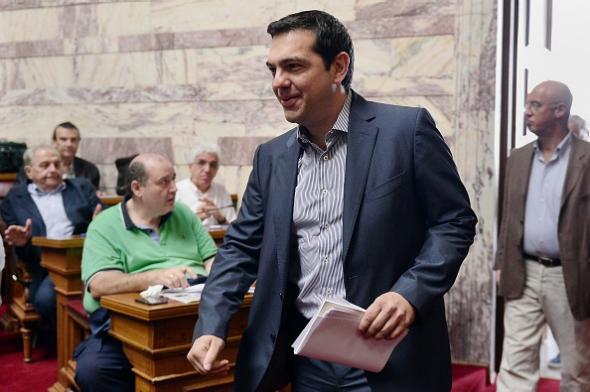As recently as Thursday, the standoff between Greek Prime Minister Alexis Tsipras’ government and the many groups to whom Greece owes money did not seem likely to end with an agreement. “At this point it’s hard to see a deal that will satisfy both European creditors and Tsipras’ supporters,” Slate’s Joshua Keating said, writing that both sides seemed to be “going through the motions” even as negotiations were supposed to be coming to a close. Earlier in the week, words like catastrophe, bankruptcy, and black scenarios had been getting thrown around. But now late-breaking concessions by the Greek government have made optmism the buzzword of the day. From the Times:
Optimism rose on Friday over the prospects of an accord between Greece and its international creditors, as the two sides weighed the latest measures from Athens aimed at overhauling its economy and securing its place in the euro currency bloc.
Prime Minister Alexis Tsipras’s government on Thursday agreed to meet most of the terms demanded by the creditors with a mix of tax increases and spending cuts, and it requested a three-year, 53.5 billion euro, or $59 billion, bailout as a starting point for talks about possible debt relief.
The deal isn’t done; most of the representatives of the country’s creditors have not responded publicly to the Greek proposal. But French President Francois Hollande praised the Greek plan and the Times reports that there are “signs that it had met with favor in Brussels,” aka the headquarters of the European Union. (U.S. Treasury Secretary Jacob Lew also expressed “cautious optimism” that a deal is near, the Wall Street Journal says.) The crucial next steps are a Friday Greek parliamentary vote on the terms Tsipras has agreed to and, on Saturday, a meeting of “Eurogroup” European finance ministers that may (or may not) end with the acceptance of those terms. As they (probably) say in the eurozone, “it ain’t over till it’s over, but things are looking good.”
